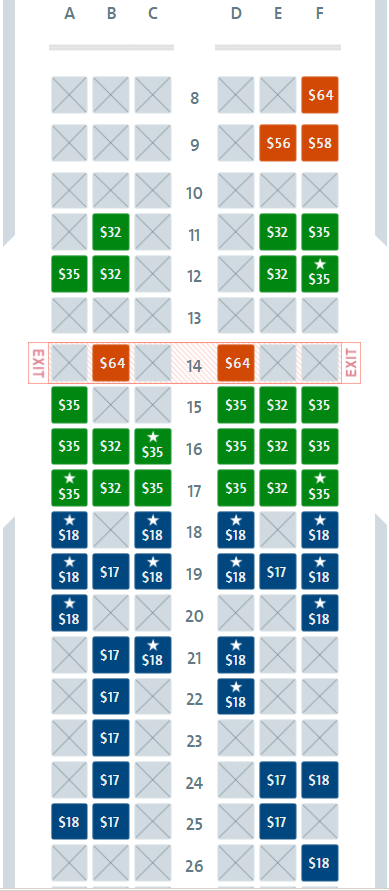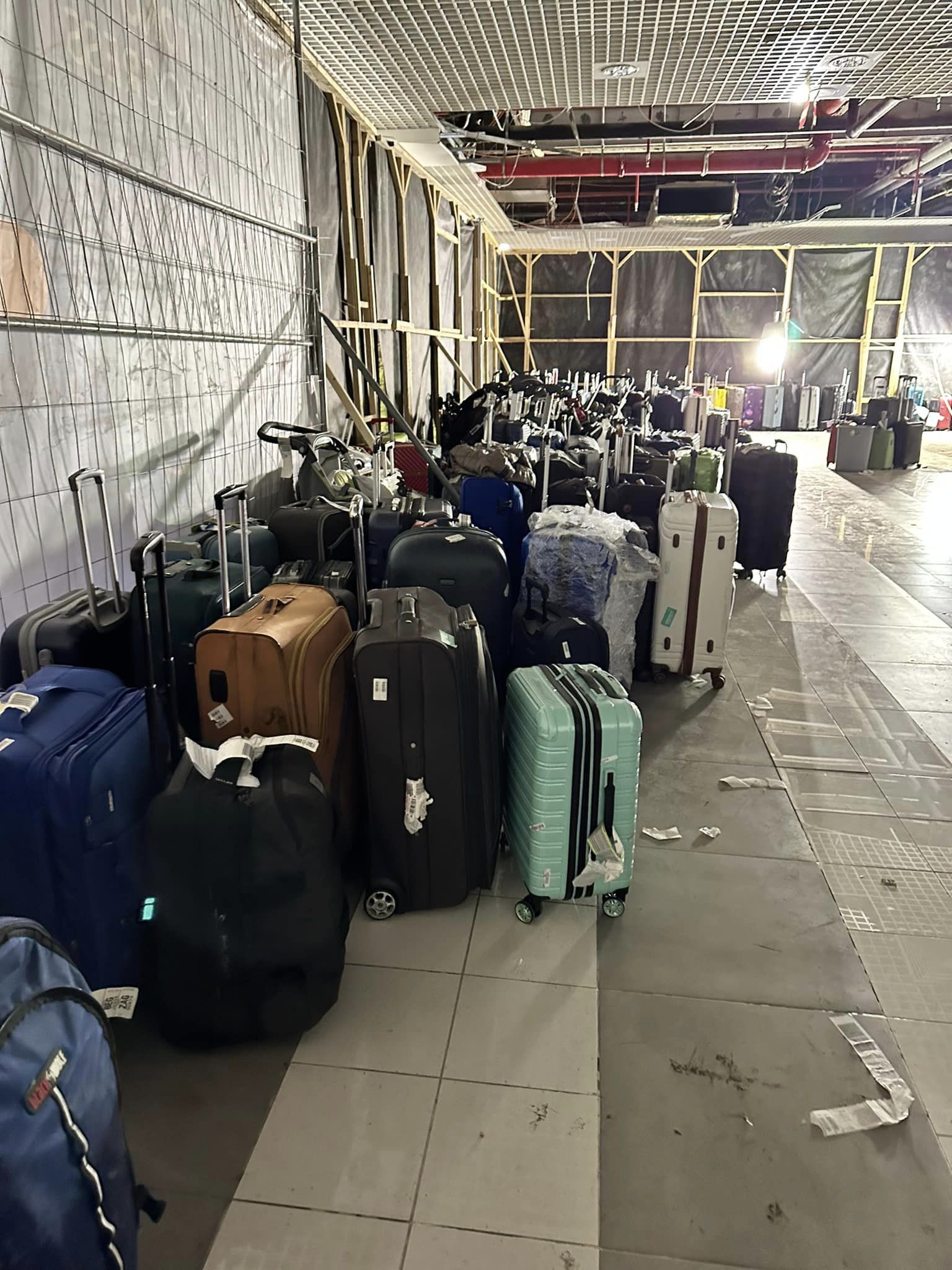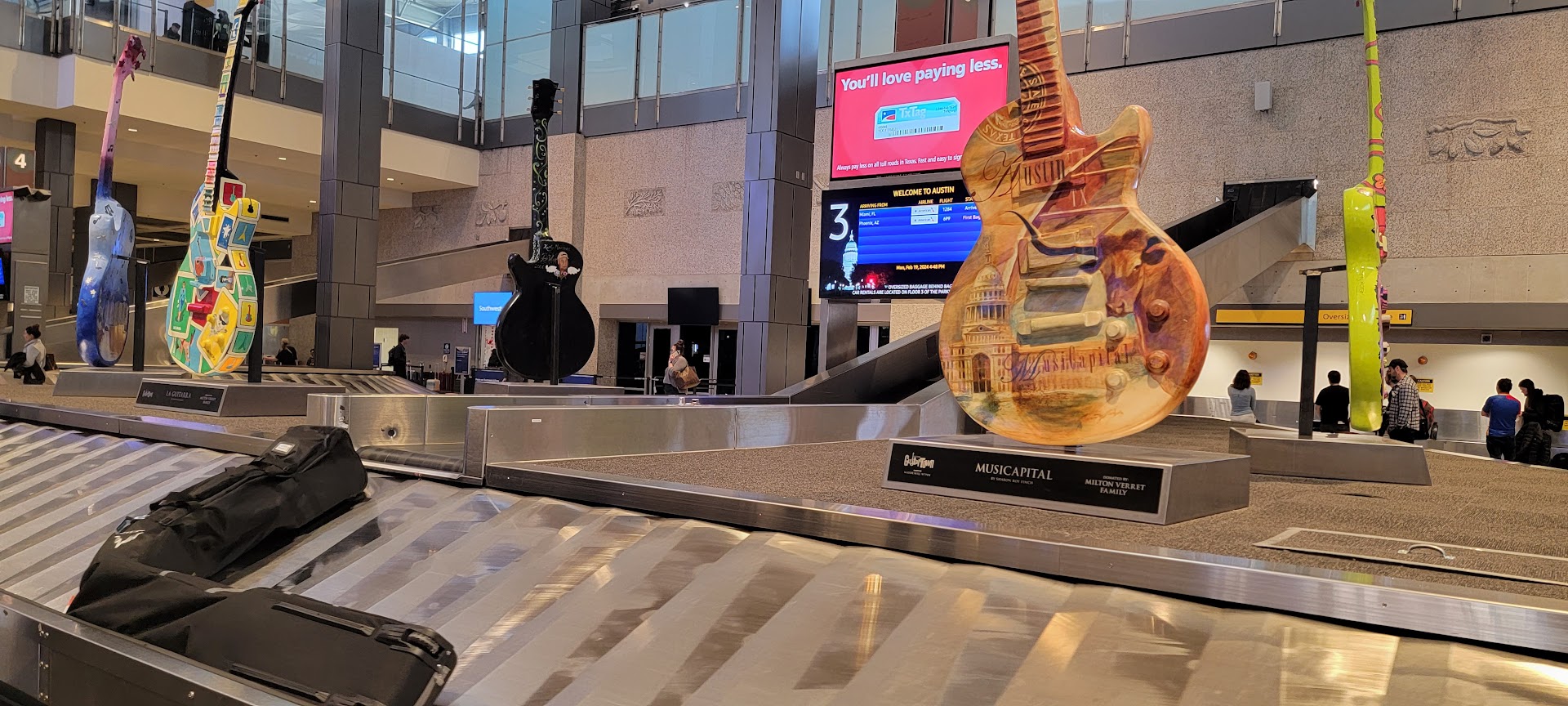Airline fees are big business, which in itself seems fine. Airlines charge a fee for seats, changes, bags, and more. Consumers willingly pay.
Senator Richard Blumenthal wants us to be shocked that Delta, United, American, Spirit and Frontier together generated $12.4 billion between 2018 and 2023 in seat fees alone and that this can be more than checked bag fees – citing United earning $1.3 billion in seat fees vs. $1.2 billion in bag fees last year. The total number is artificially low – fees were down during the pandemic when travel was off.

There are, however, two real issues.
- Congress itself is responsible for encouraging these fees. On domestic trips, airlines pay a 7.5% excise tax on airfare but not on fees. So airlines engage in tax arbitrage by shifting the cost of travel out of the fare and into fees. United alone saved $175 million in taxes by charging $2.5 billion for bags and seat assignments instead of bundling those with the fare. There is no logical reason for this tax discrepancy and the government should stop rewarding airlines for unbundbling.
- The federal government itself is responsible for lack of competition among airlines. Consumers lack robust choice in business model, even though there are several competitors. The right to takeoff and land at the country’s most congested airports is divvied out to incumbent players as a government subsidy. Airports are owned by government, security is performed (not just regulated) by government, and airlines give up control of their planes to the government from the time of pushback to taxi in. Government keeps out foreign competitors from Ryanair to Singapore Airlines. We should legalize competition, not protect airlines from it.

Of course Spirit Airlines and Frontier are ‘fee-based’ carriers that drive down the total cost of travel where they compete with bigger airlines. That’s good for consumers. And Spirit is troubled because its deal to merge with low (but not ultra-low) cost carrier JetBlue was scuttled by the government.
It was official policy of the federal government to preserve their fee-based model, and that didn’t work out well so far, yet at the same time the current Senate (controlled by the same party) is railing against the fee-based model. Make up your mind?
It is a somewhat inconvenient fact, at the Senate report highlights, that Frontier aligns incentives of employees by paying incentives for collecting fees – “as $10 for each bag a passenger is forced to check at the gate” – they don’t want employees giving passengers a pass since it’s so vital to their bottom-line.
With the change in control of the Senate, Senator Blumenthal loses his chairmanship. While he will want airline CEOs to testify in a week, and someone may show up, it will become tougher for him to continue to drive this issue without making it bipartisan. Of course, bashing airlines is generally a political winner all around so that isn’t impossible even if stochastically less likely.
In April the U.S. Department of Transportation issued a new rule on fees requiring airlines and ticket agents to fully disclose all add-on costs for baggage, changes, and cancellations upfront at first instance of displaying itineraries and fares. It also requires airlines to automatically and promptly refund passengers when services like checked baggage and Wi-Fi are not delivered as promised.
Airlines sued to stop the rule, and the U.S. Court of Appeals for the 5th Circuit issued an injunction suggesting that the carriers are likely to prevail on the merits, and suffer irreparable harm if the rules go into effect in the meantime. DOT itself estimates the cost to comply with the new rules in the hundreds of millions.

For the most part airlines already disclose fees fairly well. Required disclosures are additional clutter on the screen likely to fade into the background, like terms and conditions that nobody reads.
Consumers are not even permitted to opt out of these fee displays (!) – unless the airline first gets certification from the customer that no one on the reservation will travel with a carry-on bag or first or second checked bag. You can’t even save this as a preference in your customer profile since it’s specific to each given trip.
Yet first checked bag fees have been in place for 16 years and everyone knows to expect them. The problem is people don’t like them, not that they don’t know about them.
Each call to reservations that involves searching for flights will take a little longer as reservations agents read out required fee information. As each call takes longer, telephone hold times will get worse.
The government has picked and chosen which fees matter, fixing those in place even as what fees airlines charge change. DOT has decided that consumers are supposed to know about bag fees and change fees, but not all fees. It leaves out some of the more confusing fees, for instance it doesn’t require disclosure of fees for oversize or overweight fees, where policies vary by airline.

And rules tend to remain fixed even as fees being charged change – basic economy fares for instance were largely a non-issue the last time that DOT looked at this. United and Delta are both talking about greater unbundling of their premium products.
It would be better to focus on information on seat width and pitch available, quality of wifi (bandwidth and latency for instance), meal service etc. Or at least to let online travel sites compete to give consumers the best, most relevant, and useful information to them in making choices.
We need more competition in airline models and products, something that the big airlines fight against and collude with the government to block. The airlines aren’t angels here. But fee-based models, and fees generally, aren’t evil. Politicians grandstanding and not taking responsibility for their role in giving us limited travel options we don’t like, on the other hand, maybe are?
(HT: @istrakhov)


Valid assertions overall. On the fee front I’d say the government tax fees at 15% rather then the 7.5% on tickets.
Yes. Death and taxes and fake reviews by russi@n bots telling us that we will like the 28″ seat pitch and tight-@ass seat width. I choose my flight on two factors: 1. personal experience (which soon becomes dated) and 2. trusted source Gary Leff (despite a degree of obnoxious spin.)
I call 100%. Bull on this. The tax may be charged to the airline but it is passed to the consumer just like a sales or vat tax is.
Congress may add the tax to the bag fee. But that tax will be passed to the consumers like the hotel tax and tourism tax meals tax sales tax Vat tax is
Now the orange guy wants to add a 24% import tax. That will be passed on too
If you think a business is going to eat these taxes the have a bridge in Brooklyn to sell you
The DFW sign in a sea of bags is from a scammer company. The sign is superimposed. These are WN bags……and we know that WN doesn’t fly to DFW.
Gary gets the vast majority of this article right but he needs to let go of the notion that NK’s chapter 11 filling was because the DOJ wouldn’t approve B6′ acquisition.
Given how quickly NK filed for C 11, an acquisition of NK by B6 would have certainly taken down B6 which has seen its own finances deteriorate.
And the likelihood is high that NK will either successfully exit from chapter 11 or be acquired by a ULCC which means that NK’s model will survive – altered by the revenue changes that every carrier below the legacies is having to make.
There will be more low fare seats available left in the market even w/ NK’s smaller size than if B6 acquired them and eliminated 100% of the NK model.
As hard as it is for some to accept, the DOJ got both the NEA and B6/NK cases right.
The DOT and Congress have made numerous, years-long errors in managing the airline industry. Some might see different types of handling w/ the new administration but I doubt seriously that the tax on fees vs. air transportation will change.
Agree with Tomri – any taxes on ancillary services will be paid by the passenger – not the airline. So your rant about fees is baseless.
Well as a side note concerning baggage it is a fun weekend trip to go to Scottsboro Alabama to the Unclaimed Baggage Center. The owner of this outfit got his start buying Unclaimed luggage from Greyhound and quickly grew to have contracts with all the major airline carriers. To say it is a treasure hunt is a understatement. Wedding dress they got them diamonds they got them. A massive quirky Warehouse on both sides of the road.
Make the airlines PAY, because they nake us pay
Canada charges GST/HST on *everything*, INCLUDING airport taxes! Consider us lucky, but I wouldn’t be surprised if the Feds come up with a 7.5% Federal Air Sales Tax to recoup this. FET can be backfilled on the taxes paid on the fuel, some airlines actually get a refund, so the FET of 7.5% may not actually ever make it into the Federal coffers like some expect.
Just like “cruise gratuities”.
Please double ticket prices and stop charging for everything else.
I had a SYD to AKL flight years ago for a ticket for my EX when i cancelled the ticket 3 months after i purchased it I was told that I would get nothing back for the ticket but the NZ /AU taxes and airport fees. This was like 50% of the original ticket price. I was very glad I did cancel it because with the currency exchange rate that time i received almost 80%.
thus the USA 7% is not as bad as the VAT taxes and fees in AU and NZ!!!!
What we need to ban is not the airline fees, but the Big Government that is eating our money, and producing moronic rules, business-hostile laws, made-up excise taxes to feed themselves, and over-regulation! The guy in charge of this ‘regulation’ is our own CT Dem senator, and that’s all they can do instead of fixing their own State’s budget!
@Tomri and @Ken. I suggest you are wrong, but I do not have the time to write a reply sufficient to explain the economics tonight.
I am more concerned with the hotel’s resort fees. At least the airline seat and checked bags fees are avoidable if you choose to, the hotel resort fees are not.